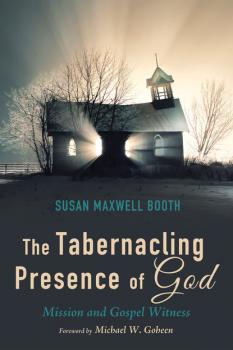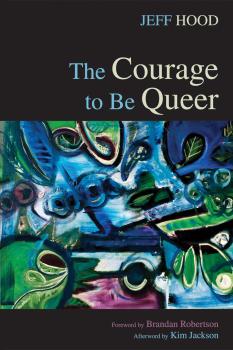ТОП просматриваемых книг сайта:
20150918
Скачать книги из серии 20150918Аннотация
Our Lives Matter uses the tenor of the 2014 national protests that emerged as a response to excessive police force against Black people to frame the book as following the discursive tradition of liberation theologies broadly speaking and womanist theology specifically. Using a womanist methodological approach, Pamela R. Lightsey helps readers explore the impact of oppression against Black LBTQ women while introducing them to the emergent intellectual movement known as queer theology. The author privileges their narratives and experiences as she reviews several doctrines and dogma of the Christian church. Theological reflection on contemporary debates such as same-sex marriage and ordination rights make this book a valuable resource to clergy, students of theology, LGBTQ persons and allies.
Аннотация
Can faith be an idol? Can the state grant freedom? What about wealth? No King but God takes up the revolutionary cry found on the lips of Jesus and his contemporaries in the first century to argue that we need the same desire to see God as King in all areas of our lives. From the marginal and prophetic perspective of the Isle of Man, and informed by a decade of pioneering work among the homeless, five contemporary idols are unmasked. The church is given a provocative challenge to embody an alternative. The response to the idols of faith, freedom, the state, wealth, and the individual is not right belief or special prayers, but the humble path of walking as Jesus walked. Soaked in scripture and hope, this is a wooing invitation into true humanity, painting a vision of a kingdom of peace and justice founded on the self-giving love of Jesus. It is a call towards, and a glimpse of, lives and a world where there is no King but God.
Аннотация
Although a large majority of believers agree that they should share their faith, most report that they, in fact, do not. That's not really all that surprising given today's pluralistic cultural setting. But maybe this same culture's longing for transcendence, community, and a place to call home points to a backstory that makes sense of it all. If such a narrative exists, it deserves a hearing, and those who know and live this story have both the responsibility and privilege of sharing its message of hope.
The narrative of the Bible tells just such a story where God's purpose from the beginning has been to dwell–or tabernacle–in the midst of the people he has created. This book traces the theme of God's tabernacling presence across Scripture, reading the story afresh through a missional lens in order to gain insights for mission and gospel witness. The hope is that readers will awaken wide-eyed to the wonder of God's tabernacling presence in our midst, that we will live in such a way that others recognize this reality, and that we will boldly and joyfully share the good news of Jesus under the direction and power of his indwelling Spirit.
The narrative of the Bible tells just such a story where God's purpose from the beginning has been to dwell–or tabernacle–in the midst of the people he has created. This book traces the theme of God's tabernacling presence across Scripture, reading the story afresh through a missional lens in order to gain insights for mission and gospel witness. The hope is that readers will awaken wide-eyed to the wonder of God's tabernacling presence in our midst, that we will live in such a way that others recognize this reality, and that we will boldly and joyfully share the good news of Jesus under the direction and power of his indwelling Spirit.
Аннотация
In this book, Jacob H. Sawyer explores the concept of hiddenness as a means to unlock the intriguing, and oft misunderstood, authorship of Soren Kierkegaard.
By understanding the melancholy man as first and foremost a Christian thinker, this work gives special attention to how the form of Kierkegaard's authorial task complements its content, giving particular attention to his use of pseudonyms. The first part of the book addresses the explicit content of the authorship, the second addresses the implicit form in which it was communicated to Kierkegaard's reader, and the third addresses how these can help us understand Kierkegaard's own «hidden inwardness.»
Through this investigation, Soren Kierkegaard is recognized as an example par excellence of a communicator. He is seen to have attempted to only speak what his own life could uphold, striving to be one who was in Christ the truth.
By understanding the melancholy man as first and foremost a Christian thinker, this work gives special attention to how the form of Kierkegaard's authorial task complements its content, giving particular attention to his use of pseudonyms. The first part of the book addresses the explicit content of the authorship, the second addresses the implicit form in which it was communicated to Kierkegaard's reader, and the third addresses how these can help us understand Kierkegaard's own «hidden inwardness.»
Through this investigation, Soren Kierkegaard is recognized as an example par excellence of a communicator. He is seen to have attempted to only speak what his own life could uphold, striving to be one who was in Christ the truth.
Аннотация
God is Queer. In a world of normative paradigms, God will never fit in and nor should we. That twitching and itching for something more will consistently be present until we step out of our closets and into the Queer. The Courage to Be Queer is about the wildness and beauty of an indescribable and uncontainable God. What is the Queer calling us to be? We are to be the ones shouting for justice. We are to be the ones dancing for freedom. We are to be the ones dreaming for hope. We are to be the ones . . .
In the midst of the spectacle of it all, there will be those observers who hear the knocking and lean in. Will you open the door?
In the midst of the spectacle of it all, there will be those observers who hear the knocking and lean in. Will you open the door?





